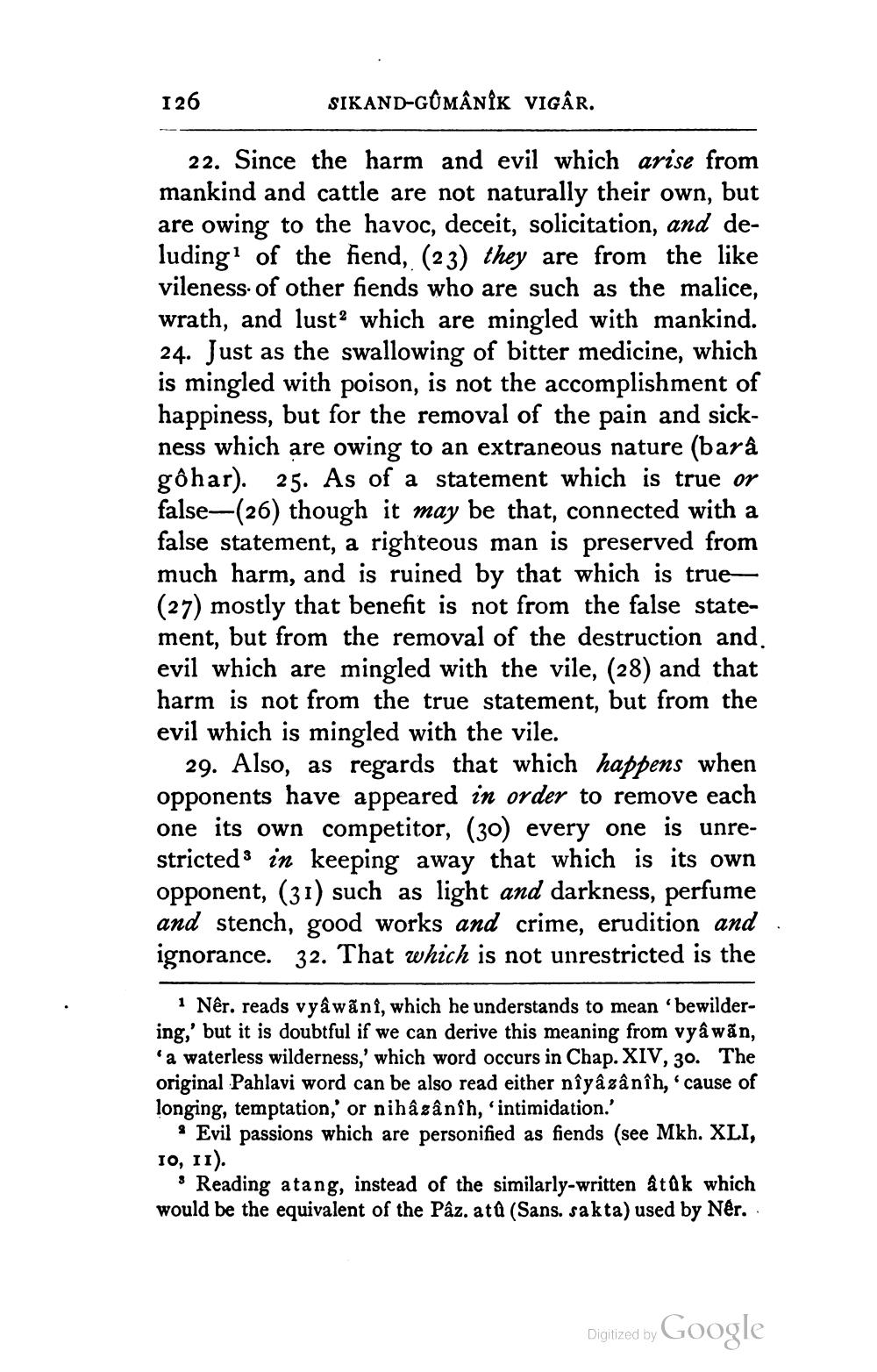________________
126
SIKAND-GÜMÂNİK VIGÂR.
22. Since the harm and evil which arise from mankind and cattle are not naturally their own, but are owing to the havoc, deceit, solicitation, and deluding' of the fiend, (23) they are from the like vileness of other fiends who are such as the malice, wrath, and lust? which are mingled with mankind. 24. Just as the swallowing of bitter medicine, which is mingled with poison, is not the accomplishment of happiness, but for the removal of the pain and sickness which are owing to an extraneous nature (barà gôhar). 25. As of a statement which is true or false—(26) though it may be that, connected with a false statement, a righteous man is preserved from much harm, and is ruined by that which is true(27) mostly that benefit is not from the false statement, but from the removal of the destruction and. evil which are mingled with the vile, (28) and that harm is not from the true statement, but from the evil which is mingled with the vile.
29. Also, as regards that which happens when opponents have appeared in order to remove each one its own competitor, (30) every one is unrestricted in keeping away that which is its own opponent, (31) such as light and darkness, perfume and stench, good works and crime, erudition and ignorance. 32. That which is not unrestricted is the
1 Nêr. reads vyâwâni, which he understands to mean 'bewildering,' but it is doubtful if we can derive this meaning from vyâwân, 'a waterless wilderness,' which word occurs in Chap. XIV, 30. The original Pahlavi word can be also read either nîyâzânîh, 'cause of longing, temptation,' or nihâzânih, 'intimidation.'
* Evil passions which are personified as fiends (see Mkh. XLI, 10, 11).
• Reading atang, instead of the similarly-written âtûk which would be the equivalent of the Paz. ata (Sans. sakta) used by Nér.
Digitized by Google




